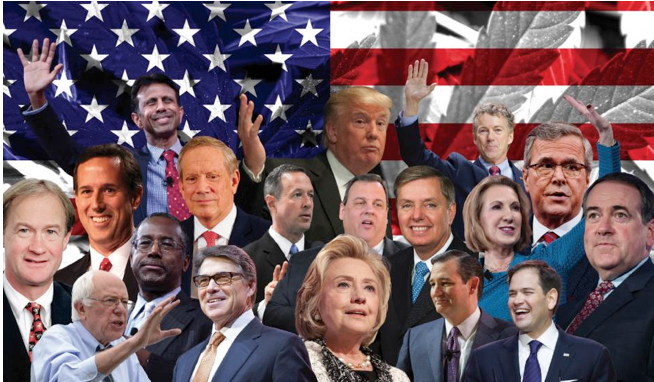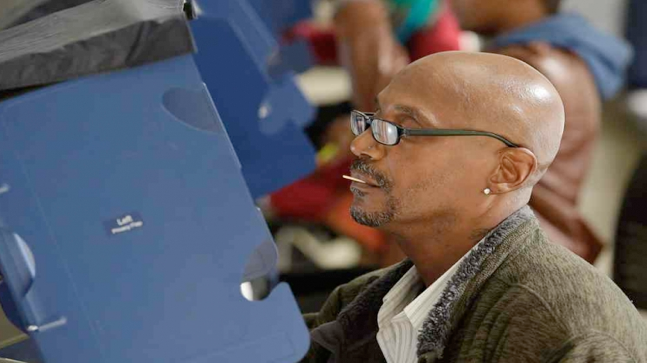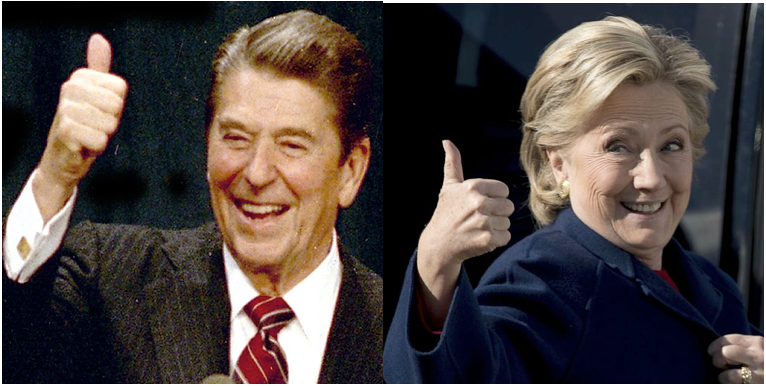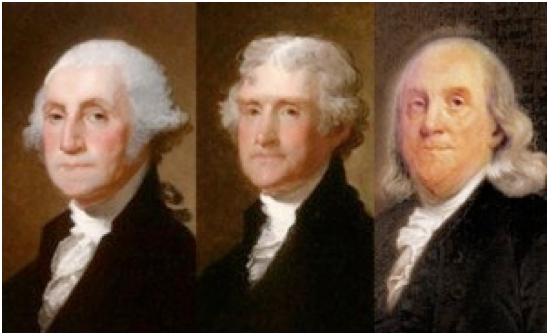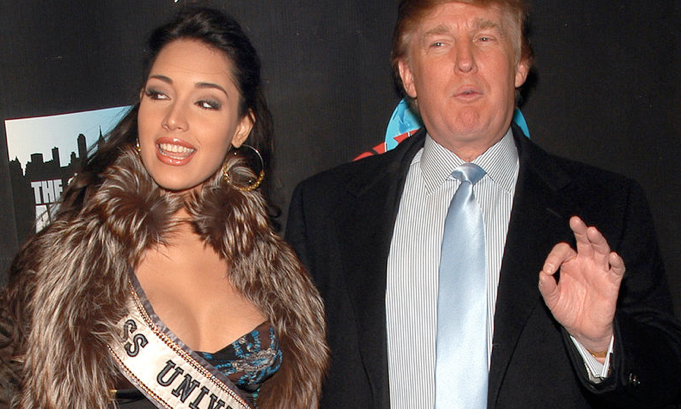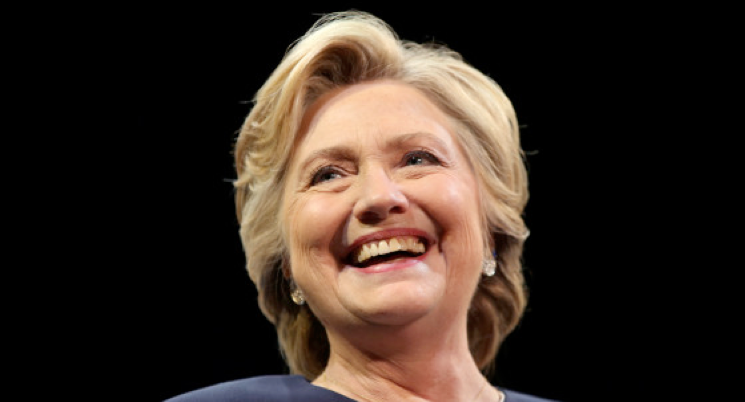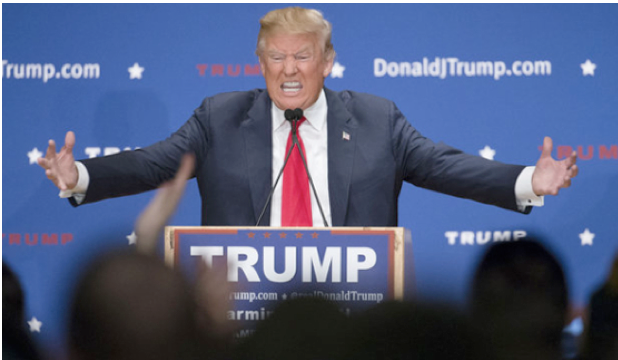LEANING RIGHT--After eight years of George W. Bush ("the uniter, not the divider") and Barack H. Obama ("hope and change") we now have the Orange Man who came into office to "Make America Great Again". Like so many others I voted for all three of them, and have both hopes and fears for the future, and a dent in my forehead from all the times I smacked my hand into it after Trump said something stupid.
Yet after listening to a President who SAID things (transparency, listening to the other side) that were wonderful but yet DID things that were unforgiveable (oversaw an IRS, Department of Homeland Security, and Department of Justice who were shockingly partisan and arguably corrupt), count me in as someone who will focus not on what Trump SAYS but what he DOES.
And in so doing, he based his campaign on representing the oppressed (including, if they will accept him, Black Americans who are hurting more than ever).
For all of Hillary Clinton's talk of killing Citizens United, Donald Trump defeated Hillary Clinton with only half the money she spent, and a very, very small payroll...after overcoming more money than the GOP elites of Mitt Romney, the Bush Family and the Beltway Bunch could have ever thrown against one man.
So eight years after electing its first African-American President, how did billionaire Donald Trump become the elected voice (of the electoral college, but not the popular vote) of so many who felt voiceless and unrepresented in the halls of power in D.C.?
1) His efforts focused on what he would DO, and his supporters latched onto the gist of what he said, not on all the verbal "gotcha" moments his opponents threw at him.
No, he is NOT an eloquent speaker--he's brash, frequently puts his foot in his mouth, and appears to be a rough, shoot-from-the-hip modern-day conglomeration of Andrew Jackson and Teddy Roosevelt. The elites hate him, but the ordinary Joe/Jane loves him. The Wall Street wealthy despise him, but those in the desperate middle class look to him for REAL "hope and change".
Of course, it's likely that both Andrew Jackson and Teddy Roosevelt were more eloquent than Mr. Trump, but all three of them--and their supporters--recognized elitist bigots and those stacking the deck in their favor when they recognized it. Currently, those wanting an end to borders and a focus on cheap labor are--intentionally or otherwise--KILLING the Middle Class.
And after not one, but two Presidents, both a cowboy and a community organizer, clearly played to the wealthy elites, and oversaw income inequality that is both historical and breath-taking in its extent and severity, much of mainstream America wanted to reward hard work and playing by the rules.
You know ... "Make America Great Again?"
Hence the Trump team might scare both the Far Right and the Far Left, but both Reince Priebus and Stephen Bannon (for all their flaws) represent the moderate-conservative center of this nation who both did and want more outreach to minorities than Mitt Romney ever, EVER performed.
And if Trump and his team are so "bigoted" then why are his three adult children married to Jews, with Tiffany Trump dating a Jew, to boot? If Bill Clinton is the "first black President", then arguably isn't Donald Trump then the "first Jewish President"?
Furthermore, if President Obama was the voice of the little guy, why were those most happy with him either uber-wealthy (Silicon Valley, Wall Street) or insulated from the realities of our harsh economy (public sector employees, high-paying jobs, those with cozy governmental contracts), leaving the Middle Class with nothing but debt and a painful loss of the American Dream?
And although Obama supporters would probably rather swallow a bag of razor blades than admit it, eight years and ten trillion dollars of debt, and a host of excuses that stopped meaning anything six years ago, we ARE in the middle of a Second Great Depression, and a Second Gilded Age, to boot (the first was in the late 1800's, and resulted in labor unions and a 40-hour work week).
Hence we saw labor unions more in favor of Trump (or at least individuals belonging to labor unions) than we ever saw them vote for a GOP candidate in decades, and more black Americans (and many Latino Americans) voting for Trump in historic percentages.
Trump was the ONLY candidate that really emphasized what UNDEREMPLOYMENT was, and that we'd had no reasonable GDP growth for the entirety of the Obama Era. Because "it's the economy, stupid!"
2) Trump listened to his supporters, and to suffering Americans, in ways that neither the younger Bush nor Obama ever did.
A surge to the Left helps only a few at the expense of the majority, and while Big Hollywood, Big Technology, and Big Green did well under Obama (just as major defense contractors did well under GW Bush), ordinary Americans and struggling small businesses were smashed and belittled whenever they complained.
And just as the GOP was unforgivably guilty of ignoring the ever-worsening costs and access problems to health care, the Obama Administration was guilty of ignoring the shrieks and screams of businesses, economists, and independent contractors who complained about the "Affordable" Care Act.
So when Donald Trump, on the campaign trail, emphasized a "repeal and replace" for the ACA, did enough leading Democrats acknowledge they should have been more responsive and respectful to those who complained about the ACA?
Hardly--in so many words, they said, "Shut up, we know better. You just can't stand it that a black President was elected."
Right--and so when I and my fellow physicians (most who, like myself voted for Obama in 2008) actually LISTENED to our patients (who didn't have good jobs like we did), and became aware of the fiscally-untenable future of the ACA, it became obvious that true "hope and change" was in order.
And Trump HAS supported the "no pre-existing conditions" and "young adults remaining on their parent's health plans" that virtually all of America wanted before and after the ACA was passed.
So the "secret handshake" and quiet, subdued, fearful suggestions of my patients and fellow physicians (and they were of both genders, and of all ethnic backgrounds!) led to an understanding that there were undercurrents that the insulated, "everything is fine, nothing to see here" Obama/Clinton crowd truly ignored.
Not "deplorable" and not "unwashed" and not "stupid". And certainly NOT "bigoted". Just IGNORED, and willing to work very hard to fight for an economic future for themselves and their children.
And the first patient of mine who had major concerns about the ACA (President Obama's version of President GW Bush's Iraq fiasco)? A young, U.S.-born, twentysomething Latino male with a mother who arrived here illegally and spoke not a single word of English.
Some of us choose to listen, and some choose not to. Some choose to presume they have a stranglehold over being "smart" and "right", and some choose to always ask themselves if they could be wrong.
It's that simple.
3) Trump promises to make America inclusive...but one that follows the law, and doesn't have a problem promoting its own best interests.
Those shrieking about racism might have their own divisive, race-obsessed agenda to confront. In his 60 minutes interview that just aired on Sunday, Trump told any of his supporters who crossed the line into bigotry to "Stop it." He also supported those who protested out of passion but had a problem with those paid protestors causing destruction and injury.
And how about, and what ARE we to do, about those far-Left agitators who are behind most of the destruction in the Black Lives Matter and anti-Trump protests? When DO we acknowledge they're out there, and are the REAL dividing force in our nation?
WILL we acknowledge that the Koch Brothers did NOT support Trump (they're libertarian globalists who have no problem sending the middle class straight to Hades in order to get cheap labor), but that George Soros is a vile man who must be limit-set, if not stopped altogether?
Or at least acknowledge that the Koch Brothers and Soros are some creepy fellows (no less than Mitt Romney, who never did stop fighting Trump...and why is that?) who are dangerous to this nation.
On a related note, when WILL we acknowledge that Trump repeatedly, as have many if not most of us, supported LEGAL immigration but NOT ILLEGAL immigration?
Legal and illegal immigration is NOT the same, dammitall, and to dismiss those decrying lawbreaking (especially those hurting the rest of us to make a few bucks) as racists is itself immoral...and maybe even racist, to boot.
Are "sanctuary cities" angelic defenders of the unrepresented, or merely corporate-run entities with an agenda that will send Black America straight to hell?
And doesn't Trump's "New Deal for Black America" a sign that he's trying to do outreach for ALL Americans, or something that will be ignored because it's coming from the Orange Man?
America is more divided than ever. Donald Trump clearly won the electoral vote, but Hillary Clinton clearly won the popular vote.
Not good. But at least we'll brook no apologists for this new Trump Administration.
There will be RESULTS, or a demand for a new person to bring about change.
And let's not forget how many people have ignored, and continue to ignore, those of our fellow Americans who are suffering and want nothing more than the opportunity to succeed through their own hard work, and by obeying the rules, and the laws, and the morals, of our American nation.
(Kenneth S. Alpern, M.D. is a dermatologist who has served in clinics in Los Angeles, Orange, and Riverside Counties. He is also a Westside Village Zone Director and Board member of the Mar Vista Community Council (MVCC), previously co-chaired its Planning and Outreach Committees, and currently is Co-Chair of its MVCC Transportation/Infrastructure Committee. He is co-chair of the CD11Transportation Advisory Committee and chairs the nonprofit Transit Coalition, and can be reached at [email protected]. He also co-chairs the grassroots Friends of the Green Line at www.fogl.us. The views expressed in this article are solely those of Mr. Alpern.)
-cw



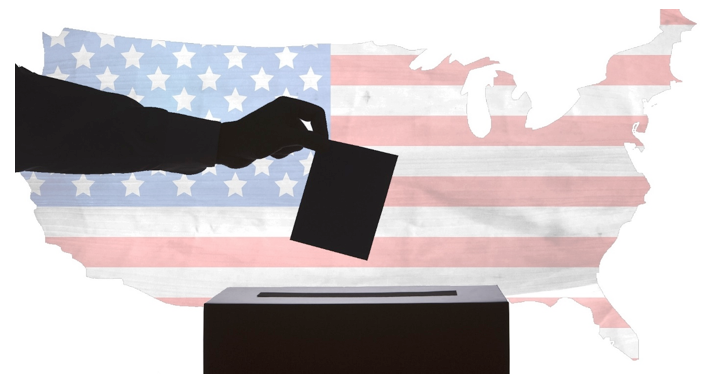
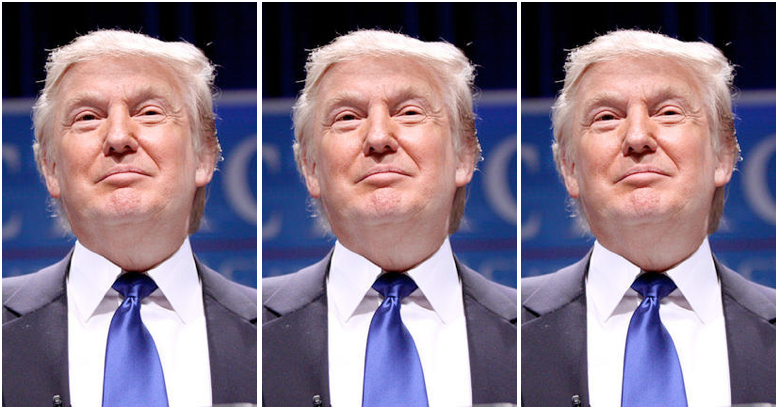

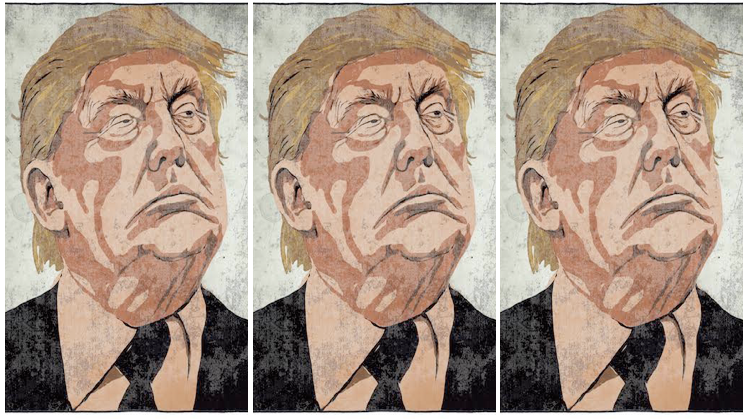
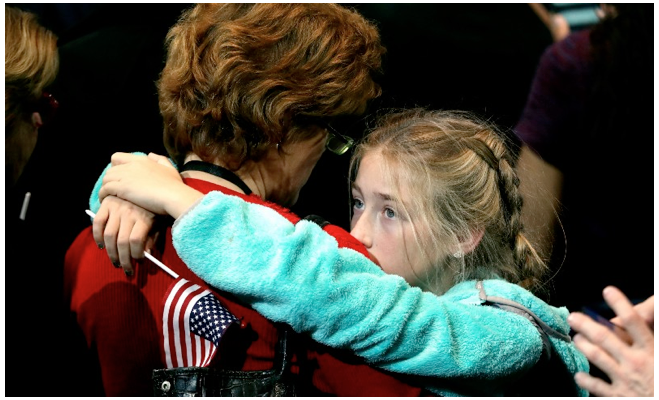
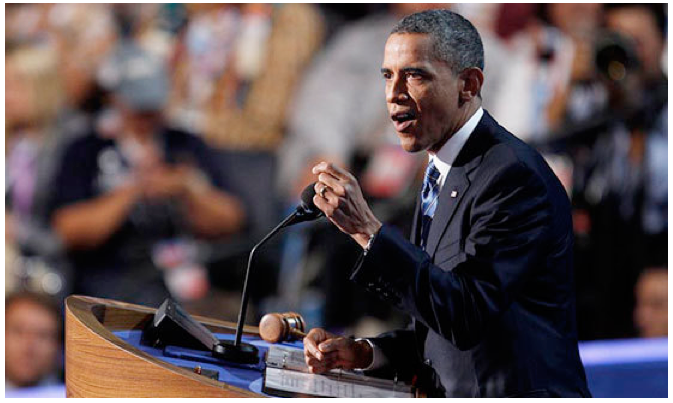
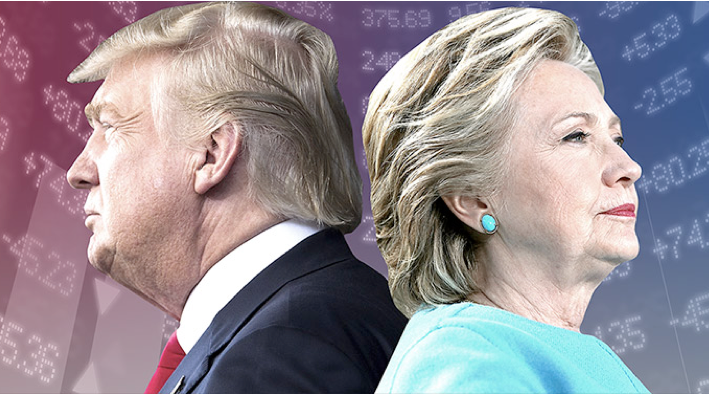
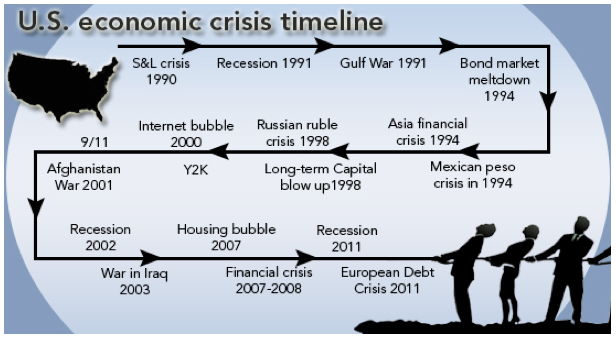
 Plus, the U.S. is actively involved in two wars, Iraq and Afghanistan, which are now approaching 15 years, with little chance of ending in the foreseeable future, regardless of who is elected President. Their total cost is so far estimated to
Plus, the U.S. is actively involved in two wars, Iraq and Afghanistan, which are now approaching 15 years, with little chance of ending in the foreseeable future, regardless of who is elected President. Their total cost is so far estimated to  In applying the above history to the Presidential election, the following implications should be carefully considered:
In applying the above history to the Presidential election, the following implications should be carefully considered: 